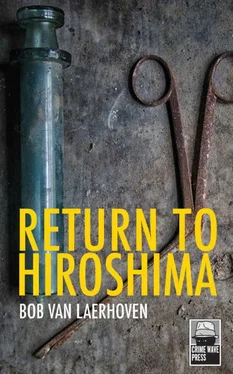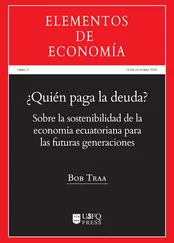The iron-coloured chest in the corner beside the metal lockers caught my eye. I rambled through the room, pretending to myself I wasn’t going to open the chest. What might be inside? I knew I couldn’t stop myself, but I resisted as long as I could. I turned on my heels and in a couple of nervous steps I was standing in front of the metal box. I was young, but even then I had an eye for detail. The chest wasn’t covered with dust like the other things in the cellar. The locking mechanism glistened as if it had just been oiled. I held my breath and clicked open the lid. I remember an explosion of heat in my body when I saw the dead, deformed baby. The dry air in the place made it look as if the baby was asleep and might wake up at any moment, in spite of its terrible deformities. Its head was swollen and disfigured. Hardened fibrous tissue bulged from its eyes. A lump of flesh bulged from its lipless mouth. The naked little body had the colour and texture of black porcelain. Its crotch was distended, a snow-white protuberance, the genitals melted like congealed egg-white.
The sight of the baby didn’t terrify me long; rather I felt sorry for it. It looked as if it could come to life at any moment, rub the fibrous tissue from its eyes, and beg for love, protection, warmth with its as good as lipless mouth.
Someone must have loved the poor creature a lot to have taken so much trouble to embalm it.
And as I thumbed through the documents I found in the chest – certificates signed by the imperial physician with reference to the nationality of the mother – I learned who that person was. I saw the chrysanthemum on the baby’s right heel and I read the date of birth.
I read the name of the father.
His full name.
Hiroshima – in a taxi on its way to the Righa Royal Hotel – Takeda and Becht – night, March 15 th1995
“Do you believe in fate?” Takeda asks the German photographer in the taxi. He’d left his police car behind on his way to the gay bar. It would be too easy to trace. Beate Becht turns to look at him. The inspector avoids her gaze and stares out of the window. In spite of his excellent English, he had used the Japanese word unmei . But he was sure she understood.
She sees his taut jaw muscles and tries to make her answer sound noncommittal: “People always say that reality is a hundred times more surprising than the imagination. It’s a cliché, of course.”
The inspector nods almost imperceptibly. “Strange that this sad merry-go-round started in my imagination,” he says with an oblique smile. “With my infamous intuition. If I hadn’t told Takamatsu that the deaths of both Shiga senior and Shiga junior in bank raids decades apart couldn’t be a coincidence none of this would have happened.”
“You shouldn’t blame yourself,” says Beate. She can’t think of anything else to say and it leaves her feeling stupid and awkward.
The inspector leans forward, lets his shoulders hang. The man isn’t finished yet, Beate thinks, but his resilience is being pushed to the limit.
“I’ve always known that a moment like this would come,” says Takeda. He continues before Beate has the chance to respond: “When they would lock me out, when everyone would see that my skin isn’t the same as everyone else’s.” His eyes veer to the right, surprisingly bright and vulnerable in the light of the neon advertisements outside. “Do you understand?”
Beate nods. Her mouth is dry. “I’ve had much the same feelings all my life,” she says, without explanation.
He stares at her long and hard. She reminds him of a watchdog: big, heavy, alert.
“Would it be an insult if I told you I’ve lived more in the last two days than in the last six months?” she asks.
He raises his eyebrows.
“Not because the situation excites me,” she hastens to add, “but because it’s forced me to make choices, and to feel .” She places the emphasis on the last word. She’s angry with herself, but also emotional and confused. She thinks: I hate the way Japanese men size women up. He’s probably no exception. But for some incomprehensible reason she feels for him.
“I cheated on her,” says Takeda. He pushes his chin forward. “Several times a month. In rabuho, those hotels you book by the hour. I paid for sex. It was something I had to do.” He turns to her: “When I was young I thought the word “love” meant something. Now, I’m not sure.”
His words throw her off balance. She knows that Japanese men never talk about such things. Not under normal circumstances. She wonders if he can read her thoughts when he adds: “I never told her. I didn’t want to hurt her. But now I think she knew all along.”
The inspector peers out of the window at the jagged contours of the Righa Royal Hotel looming up in the darkness.
Just before they step out of the car, Beate Becht says with a voice as cold as ice, as if she’s accusing him of something: “I think I’m falling in love with you.” She laughs nervously. Typical me, she thinks. I always know when to press the shutter release… but that’s it.
Hiroshima – Funairi Hospital – Xavier Douterloigne and two nurses – night, March 15 th1995
Xavier Douterloigne isn’t sure where he is. It’s a kind of no-man’s-land. He’s too tired to lift a finger or raise an eyelid. He’s weighted down with sadness like an overloaded barge on a mist covered river. The pain is everywhere, every centimetre of his body. It makes him want to burst open. But it’s concentrated in his head. This is what it must feel like when you set yourself on fire. There’s only room for one thought in this prison of pain, and he holds on to it like grim death: he has to keep the promise he made to Anna at Tyne Cot Cemetery in Ypres when he was thirteen. Xavier opens his mouth to tell her he’s determined to keep his promise. He cocks his ears to listen to her response, but the roar of the fire burning inside him gets louder, too loud to…
“Quick, call a doctor.”
“Do you think? He’s coming out of the coma, isn’t he?”
“Or dying.”
Hiroshima – Suicide Club squat – Kabe-cho – Reizo Shiga – night, March 15 th1995
Reizo Shiga wakes with a start from one of those unbridled nightmares that had plagued him since childhood. His nose is swollen and throbbing, his mouth full of sticky saliva from the dose of gamma -Hydroxybutyric acid he took after locking Mitsuko up in the metro service tunnel and trying to write. The ghb hadn’t produced the desired effect on time so he treated himself to a little crack to speed up the process. Reizo isn’t a fool. He knows the combination is dangerous. He feels agitated, as he always does after a dose of ghb and the short deep sleep that inevitably follows, but he’s having a hard time getting his thoughts straight. When he sees the men in the main room he thinks at first they’re members of the Suicide Club. Then he realises they’re armed. Reizo tries to figure out what’s going on. There’s no staggering stab of anxiety, the kind he used to feel when he had to go to school or prepare for an exam, just the irritation of your average junky completely caught up in his own little world. These men don’t have the right to disturb him. He sees a giant lurching towards him and thinks for an instant that he’s still stuck in his ghb trip. The giant has horns, the nose of a pig, yellow eyes and upturned tusks, a creature of nightmares. The men have torches and their light makes the coarse hair sticking up between the giant’s horns appear glossy, like a woman’s hair. Reizo starts to get nervous when he sees that the man is wearing the Noh mask of the storm god Raijin, just as he himself had worn it to harass Mitsuko a couple of hours earlier. It dawns on him that the men must have been in his basement cubby-hole, where he did his writing. The feeling of defeat in his chest surprises him. He hangs his head when he realises that two of the men are pointing their guns at him.
Читать дальше












